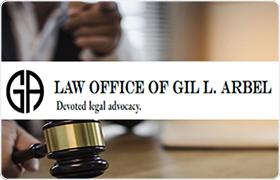Torrance White Collar Crime Lawyer, California
Sponsored Law Firm
-
 x
x

Click For More Info:
-
Law Office of Gil L. Arbel
28541 Conejo View Dr. Agoura Hills, CA 91301» view mapCriminal Defense Law Devoted Legal Advocacy
At the Law Offices of Gil L. Arbel, we understand that legal matters can be intimidating and complicated, which is why it is crucial to take an informed approach.
800-961-3980
FREE CONSULTATION
CONTACTPaul Martin Vargas
International, Gift Taxation, White Collar Crime, Corporate
Status: In Good Standing
Paul Martin Vargas
International, Gift Taxation, White Collar Crime, Corporate
Status: In Good Standing Licensed: 19 Years
Peter Larkin
Juvenile Law, Divorce, White Collar Crime, Criminal
Status: In Good Standing Licensed: 48 Years
 Gil L. Arbel Agoura Hills, CA
Gil L. Arbel Agoura Hills, CA Practice AreasExpertise
Practice AreasExpertise
